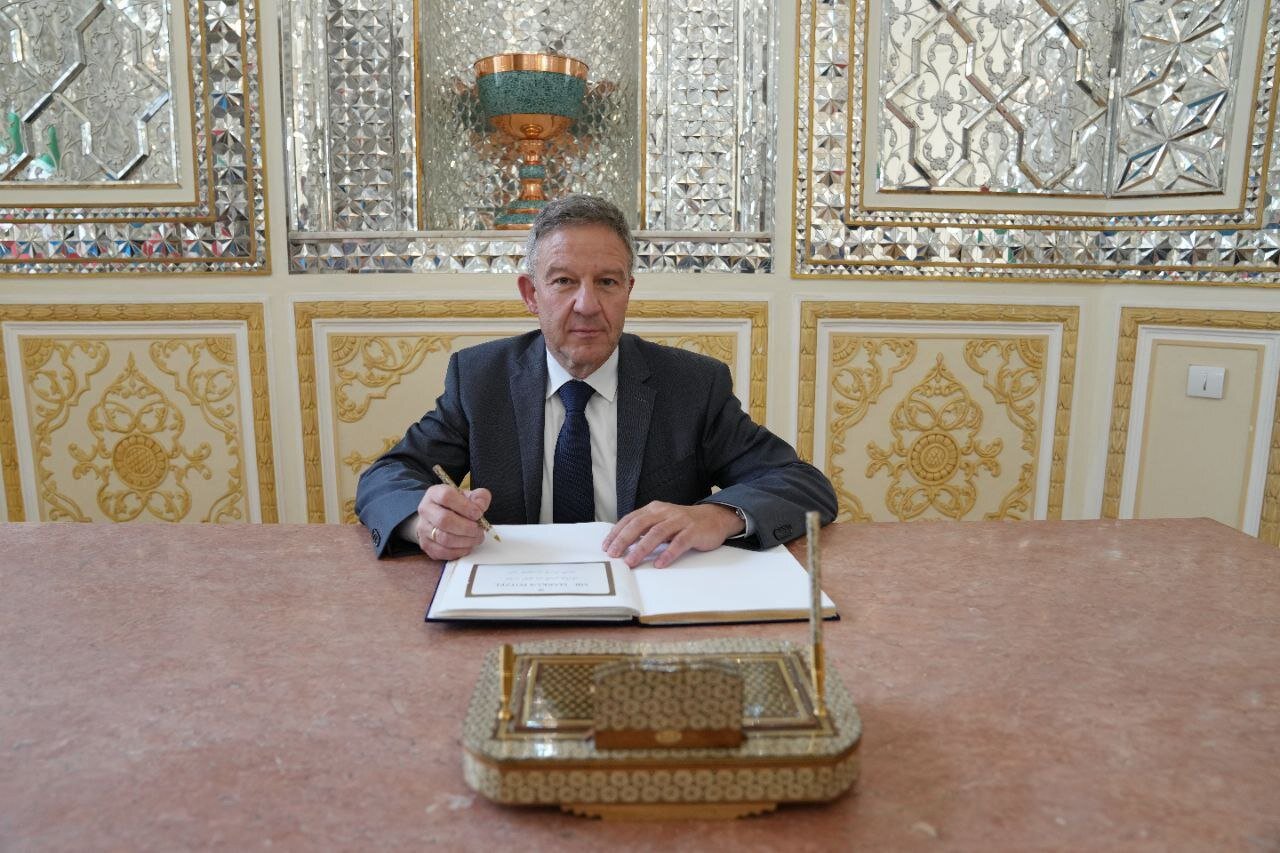German ambassador highlights archaeology as a cultural bridge between Tehran and Berlin

TEHRAN - German Ambassador to Iran, Markus Potzel, has described archaeology as a shared language of civilizations and a powerful bridge linking Iran and Germany through science and culture.
In an interview with Miras Arya (CHTN), Ambassador Potzel emphasized the strategic role of archaeological cooperation in deepening intercultural ties and called for expanding such engagement amid new political opportunities.
Reflecting on the long-standing history of archaeological collaboration between the two countries, Potzel said that the German Archaeological Institute has maintained decades of sustained interaction with Iranian research and academic institutions.
This joint civilizational capacity can serve as the cornerstone for broader cultural and scientific relations as we look toward a stable and promising future, he stated.
The German envoy also shared personal insights into the profound effect Iranian culture has had on his life and that of his family.
Iran’s deep, authentic, and multilayered heritage has left a lasting impression on us, he said. “My family members, having had the chance to live in Iran, have come to understand this country not through media narratives, but through lived experience and direct engagement with its cultural heritage,” CHTN quoted Potzel as saying on Friday.
The ambassador noted that this exposure has fostered a deeper, more humane, and peace-oriented understanding of Iran.
Touching on recent developments within Iran’s domestic political landscape, the top diplomat expressed hope that the current environment could offer a fresh opportunity to redefine and enhance bilateral relations. He emphasized that cultural and scientific diplomacy can play a decisive role in facilitating meaningful dialogue between nations.
Ambassador Potzel also highlighted his active participation in field archaeology projects in Iran over the past year, stressing that his understanding of Iranian cultural heritage is grounded not in abstract theory but in first-hand experience.
These shared projects are not only scientifically valuable but can also act as a cross-cultural language for shaping new models of cooperation, he added.
Recognizing Iran’s exceptional civilizational legacy, Potzel concluded by urging continued support for joint scientific initiatives.
We believe that archaeology, beyond being a specialized discipline, represents a common language of civilizations and a storyteller of historical memory. It can serve as the foundation for sustainable, multi-layered, and future-oriented cooperation between our countries, the ambassador said.
He underscored that such collaborations go beyond traditional diplomacy, fostering long-term cultural convergence and mutual understanding between the Iranian and German peoples.
Archaeological collaboration between Iran and Germany dates back more than a century, with landmark projects such as the excavation of Persepolis and the exploration of ancient sites in Fars, Khuzestan, and beyond. For instance, Ernst Emil Herzfeld (1879 – 1948), was a German archaeologist and Iranologist who helped create a Persian law of antiquities and excavated in the Achaemenid capitals, Pasargadae and Persepolis.
AM
Leave a Comment